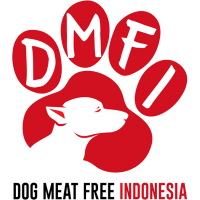What we witnessed there was utterly shocking...
These live animal markets – locally known as “traditional markets” –are places of extreme animal cruelty. Every week, tens of thousands of animals are traded and slaughtered, including many thousands of dogs and cats.
"The animals we saw at the markets were terrified, and often sick and injured, after surviving grueling journeys to market and rough handling by traders. They sat in cages, huddled together, watching others being slaughtered… trembling with fear, waiting their turn. The sights of absolute terror in their eyes, the thumping of the club as they were killed, their screams of pain, and the smell of burning hair and flesh are unimaginable and unforgettable.”
Extreme animal abuse should never be promoted as a tourists attraction.
We are shocked to discover that local authorities and tour operators promote these markets to tourists as a “must see”. The promotion of such markets trivialises the very serious nature of the animal suffering and cruelty found there. Animal cruelty should never be promoted as a form of entertainment.
The Dog Meat-Free Indonesia Coalition urges the authorities to take immediate action to address our grave concerns, and calls for the immediate closure of these horrific and unsanitary markets. This is essential to stop illegal activity, prevent large-scale animal cruelty, protect children from violence, and safeguard public health including the nation’s attempts to eliminate the deadly rabies virus.
There is an ever-growing opposition to the dog and cat meat trade within Indonesia and globally, and we are committed to working with the government to identify solutions to ensure the protection of animal welfare and public health and safety, which are gravely compromised by the trade.
We have written to the local and provincial governments as well as the central government urging them to take immediate action to tackle the cruel and dangerous live animal markets, and the trade nationwide.
Not only is this trade cruel, it also poses a threat to public health and safety, and is largely illegal.
- An estimated 80% of dogs and cats killed at these markets are sourced from outside the province, which is illegal because it breaches Indonesia’s strict anti-rabies law. Our investigations suggest that up to 90% of dogs in the markets are stolen, many owned dogs and pets.
- North Sulawesi Province has some of the highest numbers of human deaths attributed to rabies in Indonesia. The demand for dogs and cats at live animal markets is encouraging the illegal movement of large numbers of animals of unknown disease status into densely-populated areas, impeding efforts to protect communities and their animals from the deadly rabies virus.
- Sick and diseased dogs and cats are routinely slaughtered and sold for meat, and using killing methods that are as unhygienic as they are cruel. The ground awash with blood, flesh and brain fragments, and maggots, the open slaughter poses a grave, and potentially fatal, risk to both the public and consumers.
- We witnessed young children watching as dogs were beaten to death or blowtorched whilst still alive. Troublingly, none of the children we observed exhibited any emotional response whatsoever, suggesting they may have become desensitized to the cruelty.
- The markets fuel the illegal capture of and trade in wildlife, decimating wild populations and causing immense animal suffering.
The suffering of the animals at these markets is heart-breaking, and must be stopped!
The Dog Meat-Free Indonesia Coalition urges the authorities to take immediate action to address our grave concerns, and calls for the immediate closure of these horrific and unsanitary markets. This is essential to stop illegal activity, prevent large-scale animal cruelty, protect children from violence, and safeguard public health including the nation’s attempts to eliminate the deadly rabies virus.
There is an ever-growing opposition to the dog and cat meat trade within Indonesia and globally, and we are committed to working with the government to identify solutions to ensure the protection of animal welfare and public health and safety, which are gravely compromised by the trade.
We have written to the local and provincial governments as well as the central government urging them to take immediate action to tackle the cruel and dangerous live animal markets, and the trade nationwide.




